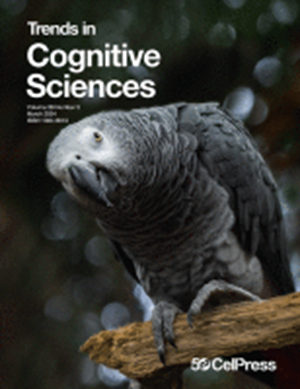Three roots of online toxicity: disembodiment, accountability, and disinhibition.
IF 16.7
1区 心理学
Q1 BEHAVIORAL SCIENCES
Trends in Cognitive Sciences
Pub Date : 2024-09-01
Epub Date: 2024-07-08
DOI:10.1016/j.tics.2024.06.001
引用次数: 0
Abstract
Online communication is central to modern social life, yet it is often linked to toxic manifestations and reduced well-being. How and why online communication enables these toxic social effects remains unanswered. In this opinion, we propose three roots of online toxicity: disembodiment, limited accountability, and disinhibition. We suggest that virtual disembodiment results in a chain of psychological states primed for deleterious social interaction. Drawing from differences between face-to-face and online interactions, the framework highlights and addresses the fundamental problems that result in impaired communication between individuals and explicates its effects on social toxicity online.
网络毒性的三个根源:非本体性、责任性和抑制性。
在线交流是现代社会生活的核心,但它往往与有毒表现和幸福感下降有关。网络交流如何以及为何会产生这些有毒的社会效应,至今仍是一个未解之谜。在这一观点中,我们提出了网络毒性的三个根源:非实体化、有限问责和抑制。我们认为,虚拟的非实体化会导致一连串的心理状态,从而引发有害的社会互动。从面对面互动和在线互动的差异出发,该框架强调并解决了导致个人之间沟通障碍的根本问题,并解释了其对网络社交毒性的影响。
本文章由计算机程序翻译,如有差异,请以英文原文为准。
求助全文
约1分钟内获得全文
求助全文
来源期刊

Trends in Cognitive Sciences
医学-行为科学
CiteScore
27.90
自引率
1.50%
发文量
156
审稿时长
6-12 weeks
期刊介绍:
Essential reading for those working directly in the cognitive sciences or in related specialist areas, Trends in Cognitive Sciences provides an instant overview of current thinking for scientists, students and teachers who want to keep up with the latest developments in the cognitive sciences. The journal brings together research in psychology, artificial intelligence, linguistics, philosophy, computer science and neuroscience. Trends in Cognitive Sciences provides a platform for the interaction of these disciplines and the evolution of cognitive science as an independent field of study.
 求助内容:
求助内容: 应助结果提醒方式:
应助结果提醒方式:


